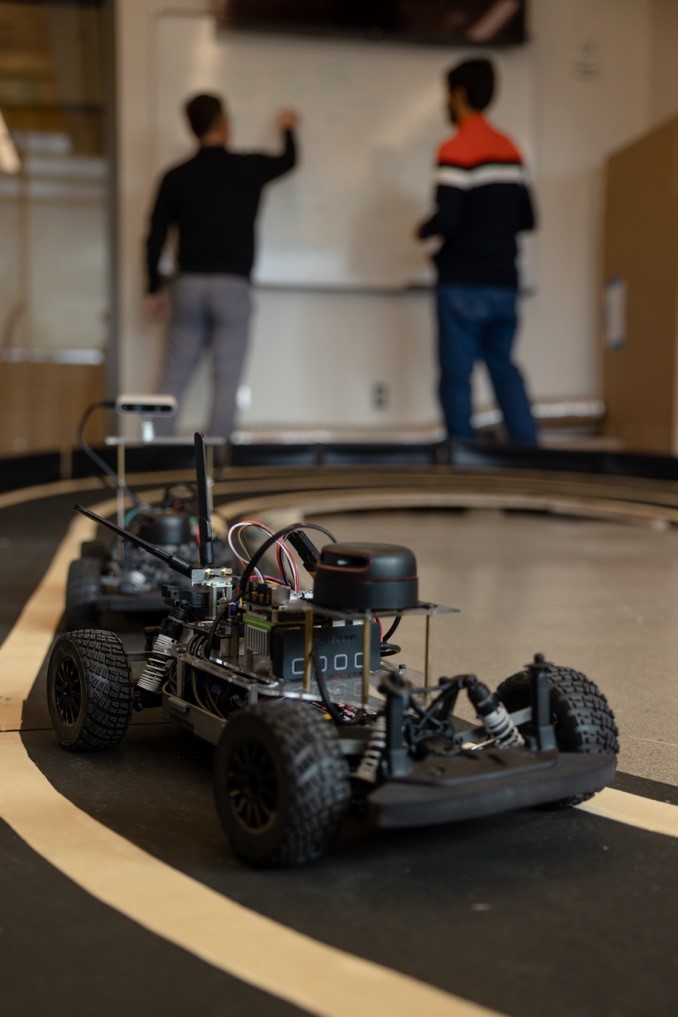Develop Tomorrow’s Leading Automotive Technologies
 Take the driver's seat in your career by pursuing the Doctor of Engineering in automotive systems and mobility at the University of Michigan-Dearborn. The program, which is designed for working professionals with at least two years of research and development experience in industry, enables students to conduct cutting-edge research using emerging technologies in the broad areas of automotive engineering and mobility.
Take the driver's seat in your career by pursuing the Doctor of Engineering in automotive systems and mobility at the University of Michigan-Dearborn. The program, which is designed for working professionals with at least two years of research and development experience in industry, enables students to conduct cutting-edge research using emerging technologies in the broad areas of automotive engineering and mobility.
During the 36-credit program, students are expected to maintain their employment status.
The DEng student handbook from the College of Engineering and Computer Science explains policies and procedures for DEng students.
Where an Automotive Systems and Mobility Degree Will Take You
Upon graduation, you'll be poised to fulfill pivotal roles in the automotive industry. Whether you envision yourself innovating with electrified vehicles, contributing to autonomous solutions, or teaching the engineers of tomorrow, your degree opens doors to a thriving career landscape filled with exciting opportunities.
